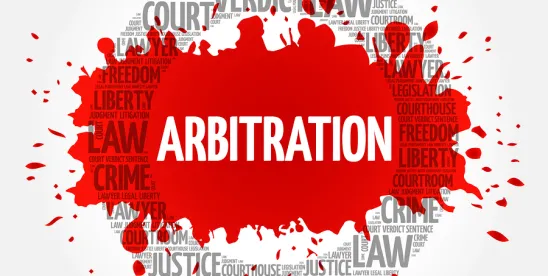It is likely not unexpected these days to be required to agree to arbitrate any and all disputes with a car dealer arising out of your vehicle acquisition. But could that same broadly-worded arbitration agreement cover a claim under the Telephone Consumer Protection Act (TCPA) arising four years after the auto is parked in your driveway? The answer itself could be subject to arbitration.
In Manual Mendoza v. Fred Haas Motors, Limited, 2020 U.S. App. Lexis 27779, Case No. 20-20123, Summary Calendar, United States Court of Appeals for the Fifth Circuit, September 1, 2020, plaintiff bought a car from defendant in 2015. In doing so he signed an Arbitration Agreement and a Personal Information Notice.
The arbitration agreement was broadly worded – covering “all claims, demands, disputes, or controversies of every kind or nature” relating to the transaction between the parties. Any arbitration was to be conducted pursuant to the provisions of the Federal Arbitration Act and “according to the Commercial Rules of the American Arbitration Association” (AAA Rules).
Four years later, in 2019, Mr. Mendoza alleged that the defendant had sent four prerecorded voicemail marketing messages to his phone. He filed a class action lawsuit asserting TCPA violations. Fred Haas moved to compel arbitration “based on the Arbitration Agreement, arguing that the Personal Information Notice was prior written consent and any dispute over the meaning of the document is subject to arbitration.” The dealer also contended that “the agreement delegates questions of arbitrability to the arbitrator.” The District Court denied the motion in an “unelaborated order,” and Haas filed an interlocutory appeal as permitted under the Federal Arbitration Act.
The United States Court of Appeals for the Fifth Circuit, after a de novo review, reversed, remanded and instructed the District Court to send the case to arbitration – “on the threshold question of arbitrability….”
The Fifth Circuit, in a per curiam decision, noted that the analysis of whether a particular claim is covered by an arbitration agreement “changes when the parties include a delegation clause giving the arbitrator the primary authority to rule” on that question. The focus then shifts to whether there is “‘clear unmistakable’ evidence” that the parties intended to have an arbitrator make that decision. And here, the incorporation of the AAA rules into the agreement presented that evidence. In particular, Rule 7(a) provides in relevant part that “the arbitrator shall have the power to rule on his or her own jurisdiction, including any objections with respect…to the arbitrability of any claim or counterclaim.”
Thus, the District Court was stripped of authority to rule on the arbitrability of the TCPA claims. Mendoza tried to argue that the delegation only related to claims regarding the vehicle transaction – a logical argument under the circumstances. But plaintiff raised this theory for the first time on appeal and thus, “Mendoza waived this argument by failing to present it to the District Court.”
In a parting caution, the Fifth Circuit noted that it was expressing “no views on the scope of the arbitration clause or the merits of the underlying dispute.”
TCPAWorld Lesson – if you want an arbitrator to decide arbitrability make sure there is “clear and unmistakable evidence” of that intent in your arbitration clause.




 />i
/>i

